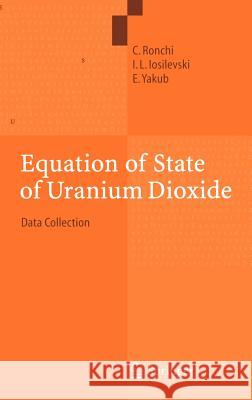Equation of State of Uranium Dioxide: Data Collection » książka
Equation of State of Uranium Dioxide: Data Collection
ISBN-13: 9783540221227 / Angielski / Twarda / 2004 / 356 str.
In the beginning of the 1990's, in the course of the events which were rapidly cha- ing the political con?guration of the East European countries, the crisis which - vested the vast research apparatus of the former Soviet Union was entailing con- quences whose dimension and depth were immediately realized by the international scienti?c community. In the same years, however, the most important branch of nuclear energy - searchanddevelopment, inparticularthatconcerning?ssionreactor, wasworldwide undergoing a substantial reduction due to a variety of decisional situations. Yet, paradoxically, it was a very good fortune that a number of concerns on the future of nuclear research were shared by East- and West-European scientists, especially those who were working in advanced ?elds. In fact, the only hope for coping with an uncertain future was to erect bridges between similar institutions and employ safeguarding tactics linked to a long term collaboration strategy. A decade later, this proved to be a winning decision, since the revival of nuclear energy is presently starting from a basis of common intentions and a network of established cooperation, whose seeds are to be searched in those initial, individual e?orts.











